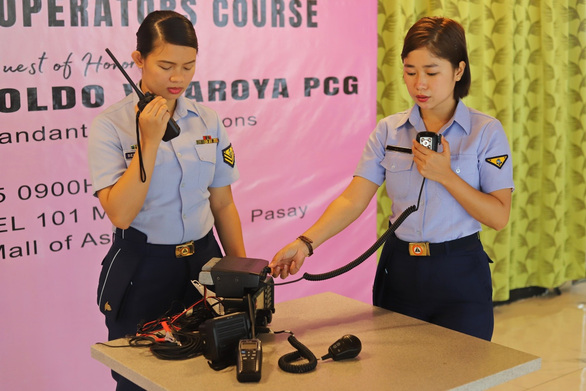The Philippines Coast Guard (PCG) has discovered a new way to keep its maritime boundaries safe from recalcitrant ships and simultaneously empower women–train them as radio operators.
The PCG has recently trained 81 women as radio operators, also called 'Angels of the Sea', and deployed them along Basilan Strait and Sibutu Passage. Some of the women will be sailing in areas infested by pirates and considered dangerous waters. These areas, which lie to the south of the Philippines, are witness to kidnappings as well, says a report in Vietnam Times.
In a press statement, Vice Admiral Leopoldo V Laroya of the PCG said: "The Command recognizes the evolving unique importance of having female radio operators aboard PCG vessels and shorebased units, especially in communicating with foreign ships, so as not to elevate tension. We want our “Angels of the Sea” to become the voice of peaceful and rules-based order at sea, especially in our country's sensitive maritime frontiers”.
Laroya added that this initiative will also balance the "prevailing gender discrimination in the uniformed services, where the voices of men weigh heavier than the voice of women". He added: "To our graduates, know that you could be great influencers and convincers by raising your voices with less pressure to sway those who are listening, which will then lead to successful operations".
Why the women radio operators are called 'Angels of the Sea', has an interesting story to it—and it involves Chinese mechanisations in the South China Sea (SCS).
The Philippines Coast Guard believes that women radio operators are successful in driving away ships from the country's maritime borders. They cite an example from April, in which the pre-recorded voice of a female coast guard member persuaded seven Chinese vessels near a Philippines reef to leave their waters.
The South China Morning Post says that women’s voices over the radio are "more likely to ease tensions with foreign crews – who may resent a male operator barking commands at them – but they will also hold a psychological advantage over their opponents due to the matriarchal aspects of Asian societies."
Rear Admiral Ronnie Gil Gavan, who came up with the idea, says that the foundation of his idea is based on the “maternal” appeal as female voices evoked “the authority of wives or mothers that pervades the Asian culture”.
The women will be deployed on both–coast guard patrol ships as well as various PCG bases. They have been trained in communication skills and will help in enhancing maritime law enforcement, maritime safety, and maritime security in the Philippine seas. The Angels of the Sea will also be placed on rotational training exercises at various Philippine maritime jurisdictions–the West Philippine Sea (commonly known as the South China Sea)
Relations between the Philippines and China have been tense over maritime jurisdictions in the SCS. The Philippines has often complained about the lengthy presence of Chinese fishing boats and other ships in its Exclusive Economic Zone (EEZ). The South East Asian country has alleged that its EEZ has been invaded by hundreds of Chinese maritime militia boats. It has lodged dozens of diplomatic protests against the violations by various Chinese vessels.




















